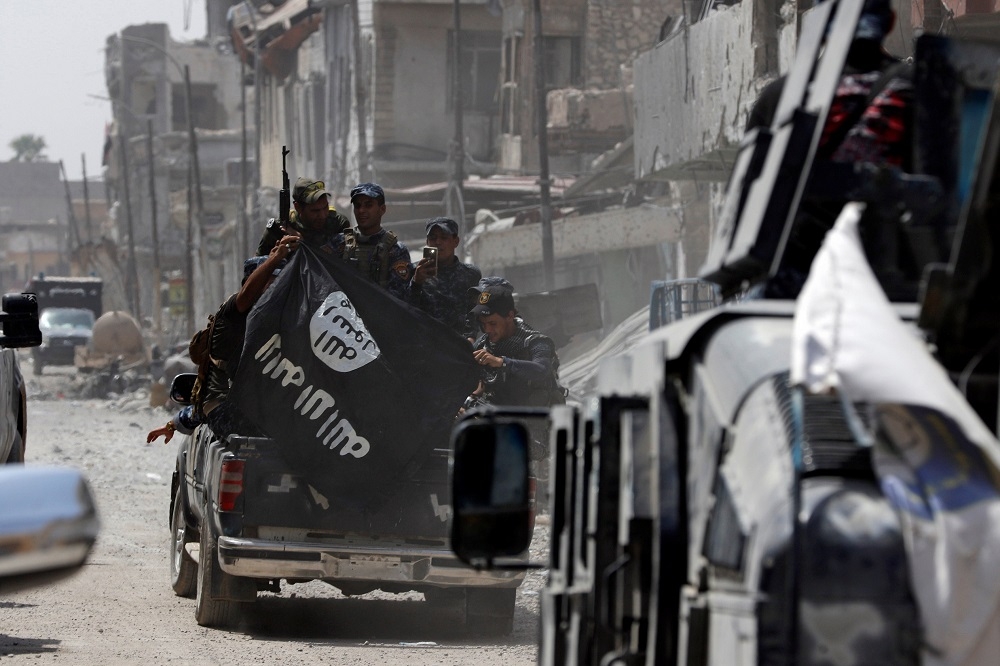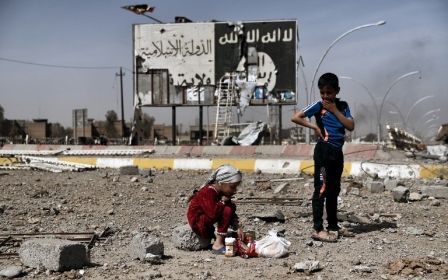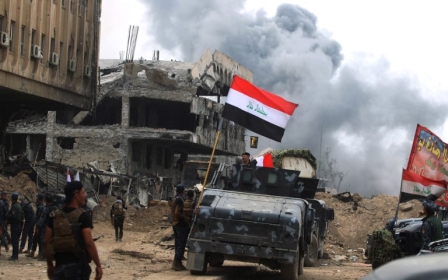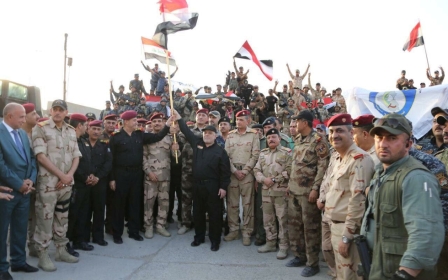Iraq accused of collective punishment of IS militants' families

Human Rights Watch has accused Iraqi security forces of forcibly relocating at least 170 families of alleged Islamic State (IS) group members to a closed "rehabilitation camp" as a form of collective punishment.
“Iraqi authorities shouldn’t punish entire families because of their relatives’ actions,” said Lama Fakih, deputy Middle East director at Human Rights Watch.
Medical workers at the camp said that at least 10 women and children had died travelling to or at the camp, most because of dehydration, the rights group said.
“These abusive acts are war crimes and are sabotaging efforts to promote reconciliation in areas retaken from IS,” said Fakih.
An Iraqi military spokesman was not immediately available for comment.
Iraq's prime minister, Haider al-Abadi, has announced victory over IS in Mosul, ending three years of militant rule in the stronghold of their self-proclaimed caliphate.
Iraq's government now faces the task of preventing revenge attacks against people associated with IS that could, along with sectarian tensions, undermine efforts to create long-term stability in the country.
“The camps for so-called ISIS families have nothing to do with rehabilitation and are instead de facto detention centres for adults and children who have not been accused of any wrongdoing,” Fakih said. “These families should be freely permitted to go where they can live safely.”
Iraqi authorities have opened the first of what they describe as "rehabilitation" camps in Bartalla, just east of Mosul. Human Rights Watch says the official purpose of the camp is to enable psychological and ideological rehabilitation.
"Forced displacements and arbitrary detentions have been taking place in Anbar, Babil, Diyala, Salah al-Din, and Nineveh governorates, altogether affecting hundreds of families," the group said.
"Iraqi security and military forces have done little to stop these abuses, and in some instances participated in them."
Human Rights Watch said it visited Bartalla camp and interviewed 14 families, each with up to 18 members.
"New residents said that Iraqi security forces had brought the families to the camp and that the police were holding them against their will because of accusations that they had relatives linked to ISIS," said Human Rights Watch.
Middle East Eye propose une couverture et une analyse indépendantes et incomparables du Moyen-Orient, de l’Afrique du Nord et d’autres régions du monde. Pour en savoir plus sur la reprise de ce contenu et les frais qui s’appliquent, veuillez remplir ce formulaire [en anglais]. Pour en savoir plus sur MEE, cliquez ici [en anglais].




